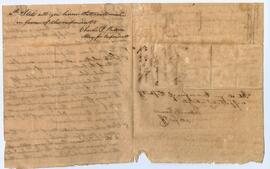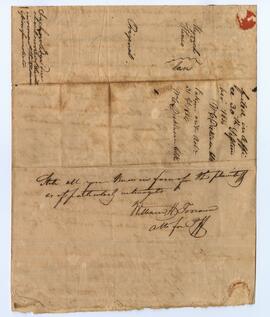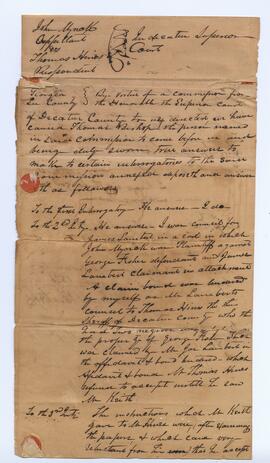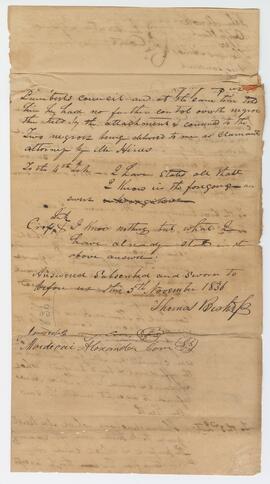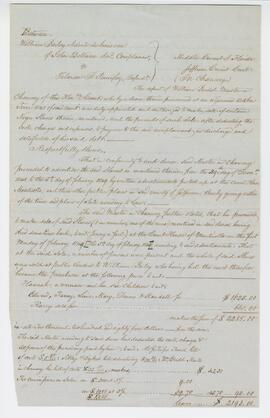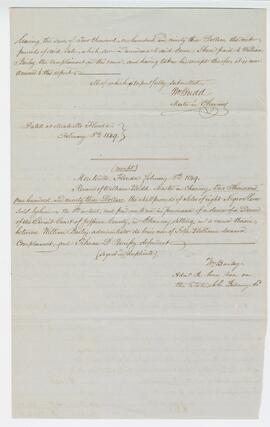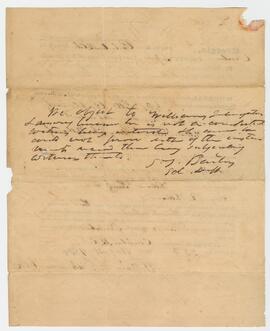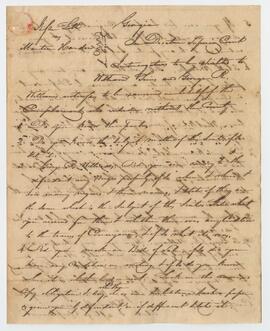Identity elements
Reference code
Name and location of repository
Level of description
Title
Date(s)
- 1832-1948 (Creation)
Extent
8 linear feet
Name of creator
Biographical history
Content and structure elements
Scope and content
This collection provides an overview of the significance and potential of rare slave estate documents in illuminating the hidden history of slavery. These documents, often overlooked and scattered, hold a treasure trove of information about the lives of enslaved individuals, the economic systems that sustained slavery, and the broader social context of their time. It explores the various types of rare slave estate documents, their historical importance, and the ways in which they contribute to a deeper understanding of the institution of slavery.
Rare slave estate documents encompass a wide range of materials, including wills, inventories, bills of sale, plantation ledgers, and personal correspondence. These documents offer unique insights into the lived experiences of enslaved people, detailing their names, family relationships, work assignments, and the hardships they endured. They also shed light on the economic aspects of slavery, revealing the financial transactions, property valuations, and the labor force that supported the slaveholding class.
The historical significance of these documents cannot be overstated. They challenge conventional narratives and stereotypes about slavery by presenting a more nuanced and humanizing perspective. Rare slave estate documents are invaluable for scholars, researchers, and educators seeking to reconstruct the stories of enslaved individuals and their communities, as well as the complex social dynamics that shaped the institution of slavery.
System of arrangement
Following a preliminary survey, our recommended approach involves meticulously cataloging the collection in a chronological sequence. Wherever feasible, we will employ discernible names to enhance the organization of the materials. As part of our preservation efforts, we intend to transfer the documents into flat archival boxes to safeguard their structural integrity.
To ensure the long-term preservation of these historical materials, acid-free file folders will be utilized as dividers between documents. Additionally, we will employ sheet protectors with a balanced pH level to isolate any decorative elements. This comprehensive approach aims to enhance the collection's accessibility and orderliness and protect these valuable documents for future generations.
Conditions of access and use elements
Conditions governing access
Physical access
Technical access
Conditions governing reproduction
Languages of the material
- English
Scripts of the material
Language and script notes
Finding aids
Generated finding aid
Acquisition and appraisal elements
Custodial history
Immediate source of acquisition
Appraisal, destruction and scheduling information
Accruals
Related materials elements
Existence and location of originals
Existence and location of copies
Related archival materials
Related descriptions
Notes element
General note
The James N. Eaton Rare Slavery Document Collection is a curated assemblage of original slavery papers and artifacts that offer a profound insight into one of the darkest chapters in human history. This meticulously assembled collection presents a comprehensive and historically significant documentation of the institution of slavery, its multifaceted impact, and the resilient spirit of those who endured it.
Spanning centuries and geographical regions, the James N. Eaton Rare Slavery Documents Collection comprises many primary source materials, including letters, estate files, legal documents, plantation records, publications, and personal artifacts.
The Eaton Slavery Documents is an unprocessed collection of rare, printed records that were
collected and purchased by Dr. James N. Eaton during his travels throughout the
Southeastern United States. The records were acquired during his tenure as the founder and
first director of The Black Archives (1976-2003). He obtained the different documents from
antique shops, antique book dealers, and auction houses such as Affiliated Auctions, and
Live Auctioneers.
Specialized notes
- Processing information: These documents contribute to contemporary discussions about reparations, social justice, and reconciliation. By uncovering the often-overlooked details of the slave experience, they serve as crucial evidence in addressing historical injustices and fostering a deeper understanding of the enduring legacy of slavery in today's society. The collection encourages further exploration of rare slave estate documents and their role in reshaping our understanding of history. By acknowledging the existence and importance of these documents, we take a step closer to acknowledging the full scope of the past and its impact on our present-day social and political landscape.

